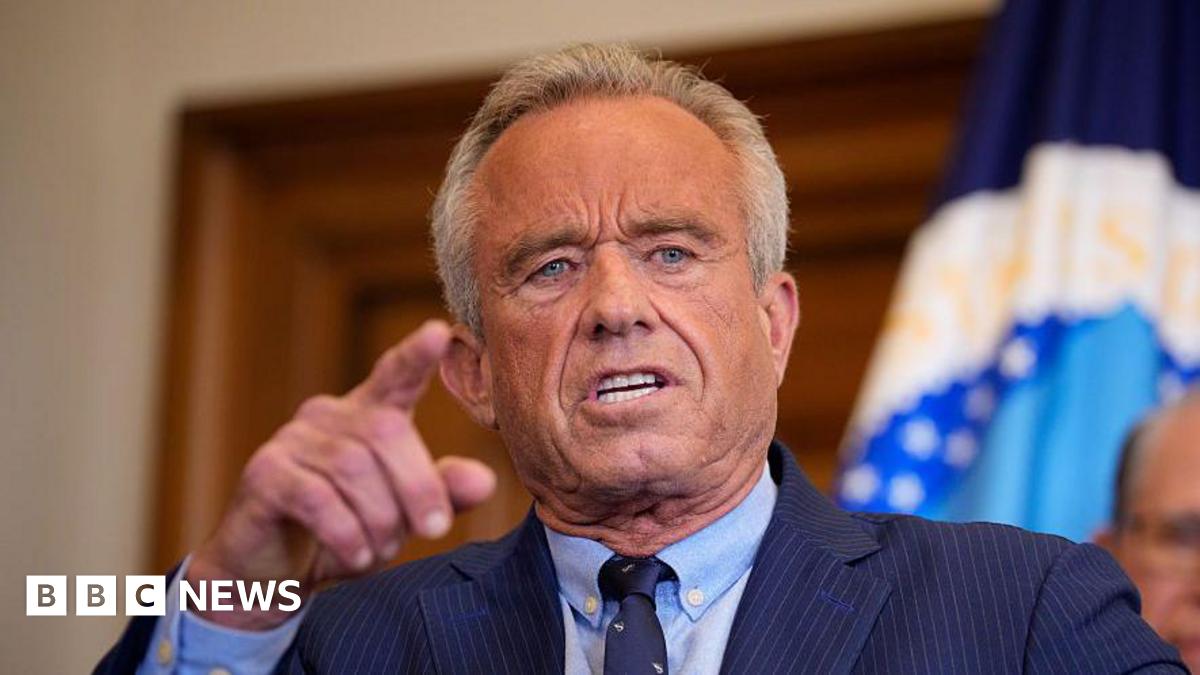Kennedy’s Revamp of the ACIP: A Shift Towards Vaccine Skepticism
In a recent announcement, Secretary of Health Robert F. Kennedy Jr. unveiled the new members of the Advisory Committee on Immunization Practices (ACIP). This committee plays a crucial role in advising the Centers for Disease Control and Prevention (CDC) on vaccine recommendations, determining which groups should receive vaccines and when. Kennedy’s selection of members has drawn considerable attention, primarily due to their associations with vaccine skepticism.
New Appointments: Who’s Who in the Committee
The newly appointed members include notable figures like Joseph R. Hibbeln, Martin Kulldorff, Retsef Levi, Robert W. Malone, Cody Meissner, James Pagano, Vicky Pebsworth, and Michael A. Ross. This diverse group comprises scientists, physicians, and public health experts, many of whom have been allies of Kennedy for years. Their backgrounds suggest a significant ideological shift within the committee, emphasizing a more cautious approach toward vaccines.
The Praise and Commitment to Science
In his announcement, Kennedy praised the credentials of the new appointees, describing them as “highly credentialed scientists, leading public-health experts, and some of America’s most accomplished physicians.” He emphasized that these individuals are dedicated to “evidence-based medicine, gold-standard science, and common sense,” aiming to restore trust in public health recommendations. This commitment resonates with those who share Kennedy’s skepticism towards the mainstream healthcare narrative.
A Controversial Reorganization
The reorganization comes on the heels of Kennedy’s bold decision to “retire” all 17 existing members of ACIP, citing conflicts of interest as the primary reason. Eight of the committee’s past members had been appointed in the waning days of President Biden’s administration, a fact that Kennedy pointed out as part of the motivation for his sweeping changes. He argued that maintaining those members would have delayed President Trump from appointing a majority until 2028, making the urgency of his actions clear.
Criticism from Former Members
Despite Kennedy’s claims, former members of ACIP assert that the committee has adhered to rigorous ethical standards and protocols regarding conflicts of interest. Critics argue that the changes could undermine the integrity of the panel and its recommendations. Many emphasize that the existing committee was not a mere “rubber stamp” for vaccines but was committed to careful evaluation and public health principles.
The Trust Crisis in Public Health
Kennedy also pointed to what he describes as a "crisis of public trust" concerning health authorities and pharmaceutical companies. According to him, this crisis is exacerbated by blaming misinformation or "antiscience attitudes" instead of addressing the root issues. He aims to realign public health messaging in a way that restores faith in medical recommendations.
The Role of ACIP in Vaccine Approvals
The ACIP holds significant influence over public health decisions, making its recommendations critical in determining vaccine availability and insurance coverage. The U.S. Food and Drug Administration (FDA) assesses vaccines based on the balance of benefits and risks; however, ACIP’s recommendations ultimately dictate how those vaccines are administered to various population groups. With Kennedy’s leadership and the appointment of his new allies, the committee’s direction could shift substantially in the near future.
Implications of the Reformation
The restructuring of ACIP under Kennedy’s guidance raises questions about future vaccine policies and the overall direction of public health strategies in the United States. It highlights a growing divide in public health discourse, where the acceptance of vaccines and the trust in regulatory bodies face significant challenges. As the new members take their seats, their influence will be felt in recommendations that could reshape immunization practices and potentially alter public health approaches for years to come.
Through these developments, the dialogue surrounding vaccines, public trust, and science continues to evolve, illustrating the complexities and challenges at the intersection of health policy and public perception.


